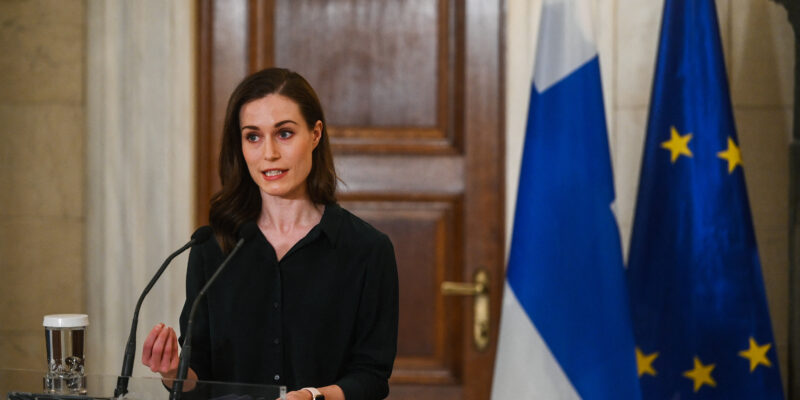Feature: Finnish Media Federation does not want to negotiate despite EU guidelines

This article first appeared on Journalisti.fi and is being reposted in English. Read it in Swedish here: https://journalisti.fi/artikkelit/2023/11/medieforbundet-vill-inte-forhandla-trots-konkurrensverkets-besked-om-kollektiva-forhandlingar-for-frilansare/
In September, the Finnish Competition and Consumer Authority gave the go-ahead for which the Union of Journalists in Finland had been waiting since a year. In a blog post, special expert Miira Kuhlberg states that there are no obstacles under competition law for a trade union to represent, for example, freelance journalists in collective negotiations on working conditions and minimum fees. The Finnish Competition Authority now confirms the European Commission’s year-old guidelines on the issue.
Isn’t it obvious that trade unions should be allowed to negotiate wages? Yes, but until now the union has not been able to give freelance journalists that support. So far, freelance journalists have negotiated their own fees with media companies.
Although the union is ready to negotiate, the employer’s representative, the Finnish Media Federation (Finnmedia), says no to negotiations.
I have agreed to an interview with Finnmedia, but the interviewee Riikka Tähtivuori cancelled it at the last minute. Instead, Riikka Tähtivuori, Director of Industrial Policy at Finnmedia, sends me a short email.
The Finnish Media Federation has familiarised itself with the FCA’s letter. As a trade organisation, we will not enter into collective negotiations on the working conditions of sole proprietors.
In other words, Finnmedia is firmly committed to the view it has held for years: that the Competition Act prohibits negotiations on freelancers’ fees. The interpretation of Finnmedia is that freelancers and sole traders are comparable to large companies. Companies that compete with each other are not allowed to agree on prices; if they do, they are suspected of cartelisation.
Hanna Zidan of the Union of Journalists in Finland (UJF) is visibly disappointed that the Finnish Media Federation does not want to negotiate. Zidan is an expert on working conditions at the union.
“I think it is short-sighted of the Media Federation to refuse to negotiate”, says Zidan.
For 20 years, UJF has collected data on the income of both permanently employed journalists and freelancers. The union’s survey shows that freelancers’ salaries are lagging behind: today, a freelancer’s euro is 62 cents.
“If anything, this shows that unions need the right to collectively bargain for those who are in a weaker position in the labour market,” Zidan said.
In the post on the Consumer and Competition Agency’s website, Miira Kuhlberg writes that “it is worth noting that the cooperation of employer companies in refusing collective bargaining could violate the Competition Act”.
Kuhlberg tells Journalisti-Journalisten that the European Commission’s guidelines do not force any party to the negotiating table. Kuhlberg also says that the Finnish Competition and Consumer Authority cannot give binding statements in advance on whether a procedure violates the Competition Act.
“But it is problematic if the employers say with one mouth that ‘none of us will negotiate separately or through the Media Federation’. It is also a problem if the Media Federation makes a recommendation that leads to all media companies refusing to negotiate collectively with the union,” says Kuhlberg.
The Finnish Competition Authority has the possibility to investigate suspected violations of the Competition Act on its own initiative or through the tips it receives.
“We monitor compliance with the Competition Act. If, after an investigation, we conclude that the law is not being complied with, we can order an operator to cease the violation of the competition rules under the threat of a fine.”
At the regional level
The Norwegian Union of Journalists’ freelance association NJ Frilans started negotiating with the daily newspaper Verdens Gang in September 2023 on the fees of freelance photographers. As early as September 2022, the Norwegian competition authority Konkurransetilsynet announced that the European Commission’s policy on sole traders would apply in Norway. In Sweden, Frilans Riks has managed to conclude a collective agreement for freelancers with the unionised media within LO Mediehus.
“For years, our affiliates have had problems with the national competition authorities, who have claimed that trade unions are not allowed to negotiate working conditions and fees for freelancers,” Renate Schroeder, Director of the European Federation of Journalists (EFJ), told Journalisti-Journalisten.
The EFJ has been lobbying for years for the European Commission to take a stand in favour of self-employed and freelance workers.
“Journalists’ organisations can now tell employers that they can no longer claim that bargaining for freelancers is a cartel activity that violates competition law,” says Schroeder.
Schroeder says that in countries where journalists’ unions cannot negotiate with the employers’ central organisation, the union negotiates separately one media house at a time. In Belgium, the Netherlands and Germany, the union has managed to negotiate with some media houses.
“The Union of Journalists would like to negotiate with the Media Federation, but since they say no, we will now negotiate the freelance issues directly with the media companies”, says Hanna Zidan from the union.
The Media Federation has told the union that it does not take a position on negotiations between media companies and the Union of Journalists in Finland.






